Premium Sheffield shopping street Fargate is 'the worst it's been' - but don't write it off just yet
and live on Freeview channel 276
Fargate, a premium pedestrian area in the city centre, has 40 units, of which 10 are closed and one is closing.
It is also home to five banks and six phone shops, reducing its pulling power.
Advertisement
Hide AdAdvertisement
Hide AdCoronavirus has rapidly accelerated what was a slow decline. But it has also been hit by the closure of Pinstone Street to buses, an intrusive, longstanding building site, ugly concrete blocks to combat terror attacks and an influx of drug addicts.
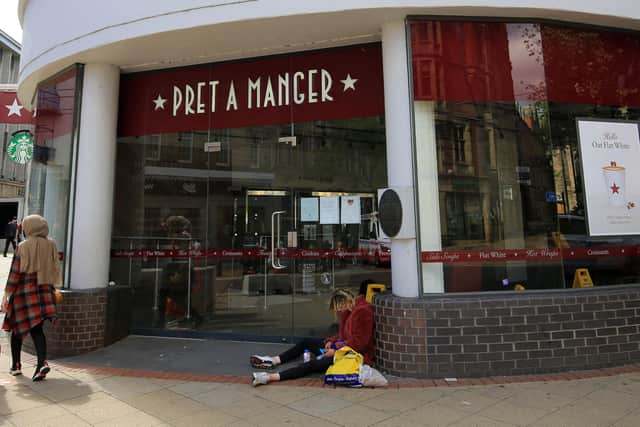

Shopper Francis Wells said it played a vital role in drawing people into the city centre, but it was suffering.
He added: “I think it probably is the worst I have seen for shops. It’s a great shame and it worries me. At the moment we don’t know if this situation is temporary or not. I like to come to the shops for the customer service. But businesses are just responding to what people do.”
Although there were some grounds for optimism.
“We come in most weeks and this is the busiest Fargate has been for a long time.”
Advertisement
Hide AdAdvertisement
Hide Ad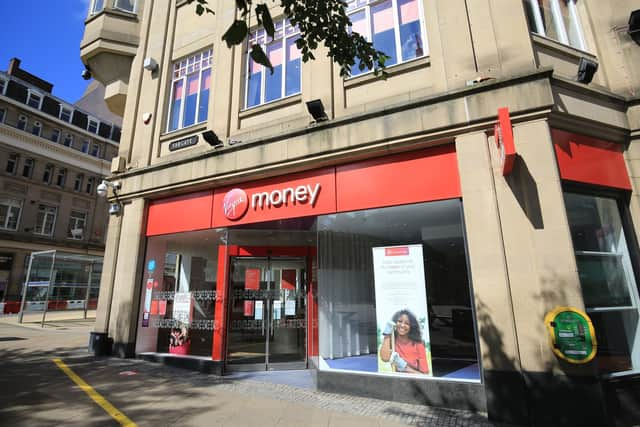

Since lockdown, three adjacent units, Pandora, Carphone Warehouse and Office shoes have closed, as has H Samuel jewellers opposite and cafe Pret a Manger.
Prior to that New Look, Next and River Island had closed and moved to The Moor.
Meanwhile Yorkshire Bank is closing on October 14, leaving a huge historic building empty at the top of Fargate.
Staff and operations will move into the Virgin Money premises opposite, following the two banks’ merger. It means the permanent closure of the popular Virgin Money Lounge which offered limitless free coffee, biscuits and wifi and was popular with retirees.
Advertisement
Hide AdAdvertisement
Hide Ad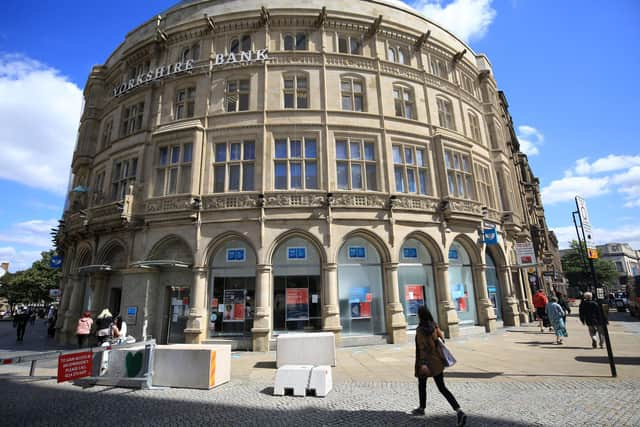

Bright spots include a new Superdrug next to the large M&S store, which increasingly stands alone as retail heavyweight on Fargate. Earlier this month M&S announced it was making 7,000 redundant nationally in the face of the coronavirus crisis.
But Diane Jarvis, head of the Business Improvement District which represents retailers, is optimistic that the future will be better.
Footfall has been rising 10 per cent week-on-week on Fargate and is set to build steadily towards Christmas, she said.
The government’s Eat Out to Help Out discount scheme has boosted numbers on Monday, Tuesday and Wednesday, with queues outside some venues, such as Wagamama.
Advertisement
Hide AdAdvertisement
Hide Ad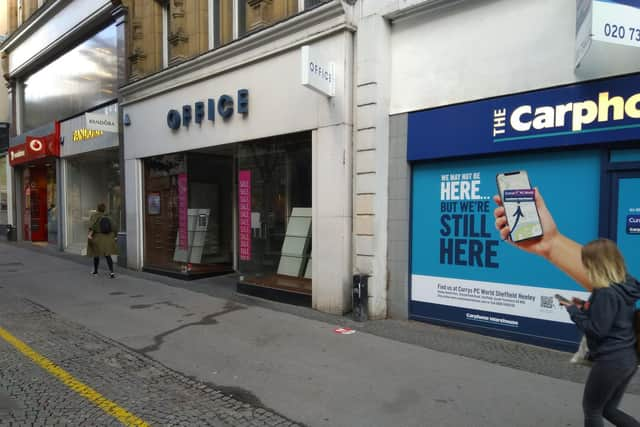

Sheffield hopes to land £25m From the Future High Street Fund which would give Fargate and High Street a big facelift. And a shake up in business rates, could see rateable value replaced by a sales tax which would hugely reduce costs for independents.
Diane said: “Poor old Fargate, it gets some stick – but don’t write it off just yet. With austerity, online shopping and business rates, it had taken some knocks even before the damage of coronavirus. It’s a problem that’s not unique to Sheffield, a lot of the big chains have been closing.
“Christmas is the next big economic milestone and the city centre will be steadily building towards that.
“Regeneration comes in cycles and we know some buildings on Fargate will have to be repurposed to food and beverage, residential, and independent and premium retailers. It’s evolving.
Advertisement
Hide AdAdvertisement
Hide Ad“The Future High Streets Fund would have a big impact and we’re hopeful that a government review of business rates will see calculations based on rateable value replaced by a sales tax. It would give independents an opportunity to move in and broaden the mix.”
A shopper, who asked not to be named, said Fargate was in a better position than Rotherham which had seen numbers plunge after losing its M&S and WHSmith stores.
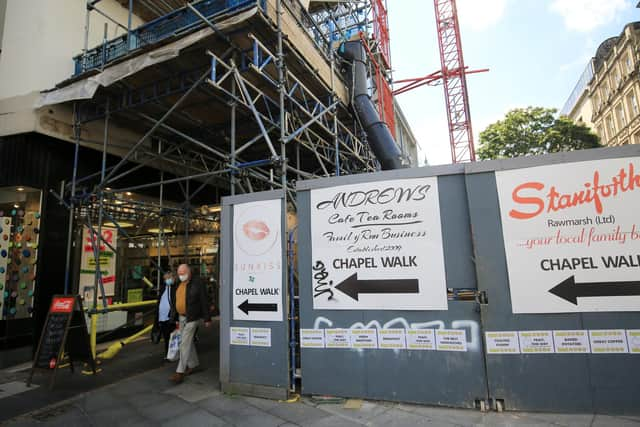

He added: “It had a big impact. Now there are betting shops, charity shops and nail bars.”
Emma from Heeley was out with her daughter. She noticed Monday was busier than Friday, when it was “dead,” and the number of apparent drug addicts.
Advertisement
Hide AdAdvertisement
Hide AdJamie Hinton, chief executive of Sheffield software company Razor, was taking a stroll up Fargate in the sun and was pleasantly surprised.
He said: “I don’t usually walk through town and it’s a lot busier than I thought. But there are a lot of banks and phone shops. Where’s the difference? What are the reasons for coming to town?
“You can’t fight the tide, it’s going to happen anyway. People want banks, money is complex and scary and people want human interaction.
“I think market stalls are the thing that makes it a bit different. An interesting market is a reason to come.”
STILL TRADING
Advertisement
Hide AdAdvertisement
Hide AdDespite a bloodbath across the country, Sheffield’s three big department stores – seen as vital to attracting shoppers into the city centre – are still trading.
M&S on Fargate, John Lewis on Barker’s Pool and Debenhams on The Moor have all survived the chop.
John Lewis has a large, standalone unit that has its own car park. It is also at the centre of the city council’s £480m Heart of the City II redevelopment plans.
Fears of the damage its closure would cause have led to repeated support from the authority. Most recently it offered reduced rent and money towards the cost of revamping the shop.
Advertisement
Hide AdAdvertisement
Hide AdDebenhams collapsed into administration four months ago and announced plans to axe 2,500 jobs throughout its stores and warehouses earlier this month.
Hundreds of jobs have already been lost at the retailer since the start of lockdown after it permanently shut 18 stores.
It has 124 left, including one in Sheffield city centre and another at Meadowhall, and employs a reported 14,000 staff across the UK.
Last week M&S announced some 7,000 job cuts, the bulk set to be made across its stores, hitting around 12 per cent of its 60,000 shop-based staff, as well as a smaller number of support centre and regional management workers.
Advertisement
Hide AdAdvertisement
Hide AdIt follows 950 job losses announced just last month across store management and head office roles.